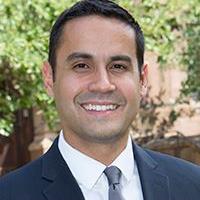The election season leading up to the election of Barack Obama precipitated a number of conversations about the specter of race in the US.
Quite common was the notion that perhaps the election of America’s first African American president would mark the dawning of a “post-racial” era.
I would argue the dream of a “post-racial” society is ultimately empty. Such hopes emerge from a positive aspiration that we might move toward a society in which racial and ethnic prejudice is no longer granted a divisive and destructive force among us. However, our differences linger on for better or for worse.
First, globalization and growing ethnic diversity are making these differences more visible and important. In the coming decades, the US will shift from a majority-minority population to one in which a number of minorities live together. As the world shrinks around us, our neighbors are bringing the variety of cultural experiences ever closer.
Second, the historical and cultural roots of racism and prejudice are deep and pernicious. Most of us are people of goodwill who aspire to treat others equally. Yet at the same time, old resentments and feelings remain in our communities. Though society now frowns upon overt racism, more subtle forms of discrimination still remain among us.
Most important, however, is that the trajectories of the Christian tradition do not move towards a “post-racial” culture. The gospel does not seek to end our differences entirely; the gospel does not seek to make us all the same, to flatten our diversity in order to make us one. God has created human diversity as a gift to be treasured not an obstacle to be overcome. The problem is not difference but when we allow difference to be imbued with the power to make some superior and others inferior.
How then do we preach with, toward, and in ethnic diversity? How can we equip our churches to be proclaimers of the good news in an ever more diverse world? How can we move towards reversing the well-known statistic that Sunday morning is the most segregated time in America? How do we start moving from culturally homogenous communities of faith to communities of faith open to difference and willing to embrace those who differ? What are the theological repercussions of worshiping only with people who look and think like us? What vision of the church are we advancing? In what ways do we narrow our reading of Scripture by avoiding worshiping and reading the Bible alongside others?
Briefly, I would propose the following principles:
1. Do not be overcome by guilt. A sense of guilt can be a focal point of transformation and liberation, but without care guilt can become unavailing and paralyzing. Instead, draw upon the confession of past sins and our complicity in them as a way to free us from the shackles of an oppressive system.
2. Do not attempt to walk in someone else’s shoes. That is, do not seek to understand fully someone else’s perspective. I can never read the Bible like a woman for instance. However, I can learn a great deal from a woman’s reading of Scripture. Thus, walk alongside those whose life experiences differ from ours. Incredible insight can emerge in these authentic relationships.
3. Do not merely collect interesting readings of scripture but engage them. Bring your full self to such discussions. Take the potentially dangerous but needed step of becoming vulnerable to change. Allow for the possibility that what we learn from others will change us profoundly.
4. Model an attitude and inclination towards openness and welcome to the other in preaching.
5. Do not always highlight otherness in exegesis, stories, and illustration nor avoid difference altogether.
6. Acknowledge the contingency of our interpretations and the necessity of other’s perspectives. Help highlight how readings of Scriptures from different cultural spaces help us see angles and assumptions we might have missed before.
7. Embrace that which makes a local community unique, demonstrating that a community’s unique perspective is a valuable resource for the reading of the Bible.
Am I suggesting that there is no room for church traditions that also have significant ethnic ties? Am I suggesting the end of the African American ecclesial tradition or Spanish-speaking churches? No, I am not advocating the end of all ethnic difference. I believe that part of God’s original creative touch was creating us all differently and that our ethnic identities are powerful resources–not obstacles–in our theological reflection. However, we can all do much, much better in being open and welcoming to difference. We can all do better in recognizing that inviting difference into our midst does not have to mean the loss of our identity or traditions but the enhancement of both.
While it is true that the future of our churches depends on how we respond to God’s ever more diverse world, there is more than this. Preaching in the midst of ethnic diversity is a life-giving opportunity. Such preaching brings new life to texts we have read and heard over and over again. It brings new life to communities of faith as we rediscover our sense of call and identity as partners with God in this ever more diverse world. It brings new life to people whose voices tend to be muffled and ignored in public discourse and, yes, even our churches. This is a matter of life and death more than it is a matter of mere survival.
There are few things more stifling than being excluded: when everyone laughs at the inside joke, when everyone knows what to say and how to act, when everyone fits in and you don’t. There are few things more stifling than knowing we have excluded someone: when we catch a hint of loss in someone’s yes or sense the awkwardness they feel. We can do better. If there is one place where welcome should be the primary inclination and our first instinct, it should be in a church where only grace allows us to belong.
1Acts 2:8a

